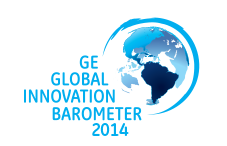 Managing cash, balancing this out with your liabilities and obligations, knowing your market dynamics, and equally, having a good understanding of where the future growth lies, are all essential for managing any healthy business.
Managing cash, balancing this out with your liabilities and obligations, knowing your market dynamics, and equally, having a good understanding of where the future growth lies, are all essential for managing any healthy business.
It is then by utilizing robust research and development projects, combined with an acquisition strategy that augments growth, management creates sustainable and evolving business model.
These are the hallmarks of effective leadership. through managing your future development, mostly through research and development, that when combined with a sound acquisition strategy, that you believe will augment your present internal growth, so as to look to sustain the business, longer-term, becomes your contribution as a leader. These are the bedrock of good corporate management. It seems within GE, all of these have been forgotten or collapsed. Why, I mean how can that have happened?
For a company reputed to have a good management discipline and focus, yet this year, 2017, for GE, it seems all of these are lying in tatters, or some parts will lose out as a consequence, into the future. What has gone wrong at GE?
The last few months have been some of the most shocking ones in GE’s history. GE has been around since 1892 and was one of the corporate titans of the 20th Century. Since the crisis of 2008, GE has been struggling to fully regain its position but all its actions were regarded very highly as “making good progress” as it maintained a relentless momentum of shedding and acquiring operations, as well as pursuing a buying back of its shares, and paying out the beloved GE dividend. This certainly provided a highly dynamic environment for managing the business. There has been a consistent muttering that this was not fast enough or clear enough. Well, GE faces a very different set of realities today.
Today, GE is in a very dark place at this moment. It is managing a full-blown set of crisis, that has investors highly spooked and demanding answers. Its share price is hovering around $17 per share, whereas, in February of this year, it was ranging in the $31- 32 price. Its market valuation, once over $400bn, is now closer to $150bn.
This is a long read, as the story itself is only just emerging and is a complex one. I simply have to step outside my own innovation comfort box to try to get to grips with the breaking GE story. It has shaken me. I assume you already have some awareness of what is happening in a company that has been held up over so many years, as a model of good management. Continue reading “The enemy is already within. The flood gates are open. Can GE recover?”

